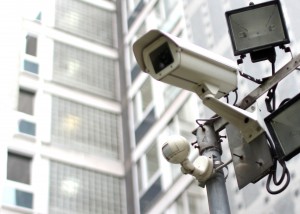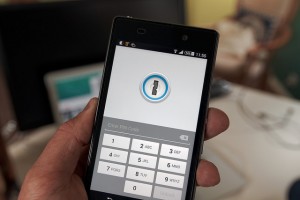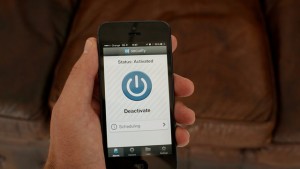 When you’re a homeowner one of your top priorities is ensuring the safety of your home. Your home is what protects you and your family. Nobody wants to deal with a home break-in but they are a sad reality in our everyday lives. Fortunately there are many ways you can safeguard your home from such devastation. The best way to deter crime is to be prepared for it. If you want to prevent a home invasion you must first understand how and when burglars are likely to attempt them. At Perfect Connections, Inc. our team of highly skilled professionals can assess the security risks specific to your home to help you avoid break-ins and other disasters. We have been providing security system services to homes throughout northern and central New Jersey for the past 23 years. Our experts assess the security risks of an individual home and come up with a customized security system solution to fit its specific needs.
When you’re a homeowner one of your top priorities is ensuring the safety of your home. Your home is what protects you and your family. Nobody wants to deal with a home break-in but they are a sad reality in our everyday lives. Fortunately there are many ways you can safeguard your home from such devastation. The best way to deter crime is to be prepared for it. If you want to prevent a home invasion you must first understand how and when burglars are likely to attempt them. At Perfect Connections, Inc. our team of highly skilled professionals can assess the security risks specific to your home to help you avoid break-ins and other disasters. We have been providing security system services to homes throughout northern and central New Jersey for the past 23 years. Our experts assess the security risks of an individual home and come up with a customized security system solution to fit its specific needs.
What are some of the most common break-in methods used by criminals? Have you ever heard of the path of least resistance? That’s usually the route they will take when it comes to breaking into homes. There are many factors that can make their job easier, and you might be unknowingly aiding their attempts. Leaving windows and doors unlocked or open are a surprisingly common way burglars get into homes. In fact 30 percent of burglars enter homes without having to use force. Spare keys left in indiscrete locations are another favorite of the home invader. It’s tempting to have a spare key for family members or friends, but if you’re going to do so don’t leave it under the door mat or in other obvious and easily accessed spots.
Some crooks will walk right up to your front door, ring the bell, and if you answer they will pretend to be selling something. They’ll probably make up a bogus story about who they work for. Whatever you do, do not let them in and ask for identification or find the company number to call and verify their identity. Do not use a number they provide as it could be a ruse. When they’re putting on this act they’re trying to get a better view into your home to see if you might have a security system and what goodies they might come back for.
Sometimes criminals will ring the doorbell and if no one answers they might go to the back of the house to try to enter through a back door or window. Even if the doors and windows are locked burglars often carry tools like crowbars to aid their break-ins. However, if it takes them longer than a minute to get in they’ll likely move on to the next target. The harder you can make it for someone to break-in the better.
How can you make it harder or less appealing for criminals to break-in to your home? One of the best lines of defense is installing a comprehensive home security system. Burglars are less likely to attempt a break-in if the targeted house has a security system, it gives them less time to escape and a higher chance of being caught. In fact 90 percent of convicted burglars said they would avoid homes with alarm systems. Keeping vegetation trimmed is important in preventing a break-in. Burglars often use unkempt bushes, trees, or flora close to the home as hiding spots where they can sit and wait for an opportune moment.
Lighting is a great deterrent as well. Motion activated exterior lights are helpful because they somewhat eliminate the sneaky element by exposing whatever moves in their path. Using light timers or home automation to control your interior lights will help prevent an intruder from attempting a break-in. It’ll help create the illusion that someone is home even if they aren’t and burglars tend to avoid break-in attempts if someone is there. Installing deadbolts is another way to at least slow down an attempted break-in. Having a single door knob lock leaves you vulnerable to thieves who use things like bump keys. Bump keys are essentially master keys used by locks smiths, they can supposedly open up to 90 percent of traditional locks.
With a burglary occurring every 15 seconds in the United States, you can never be too cautious when it comes to protecting your home. At Perfect Connections, Inc. our experts provide customized comprehensive security systems that fit your specific needs. It’s not just about protecting the physical property, it’s about protecting that peace of mind that is so hard to get back after a break-in. Don’t fall victim to the mentality that it could never happen in your neighborhood, no community is immune. Instead be prepared and don’t be a victim.
If you live or run a business in Central or Northern New Jersey and would like information on any of the topics discussed above, please call 800-369-3962 or simply CLICK HERE.
Image Credit: Image by Dexter Company-Google-Creative Commons

 Last week in our blog, we wrote about how your cell phone could be your key at your business. Now, we’d like to tell you how it could work for your home too!
Last week in our blog, we wrote about how your cell phone could be your key at your business. Now, we’d like to tell you how it could work for your home too! We use our smartphones and other mobile devices for many functions in our daily lives. It’s almost impossible to go through an entire day without seeing someone tapping, scrolling, or swiping through their phone, never mind using your own phone. We’ve created a mobile environment where convenience lies in the palm of our hands.
We use our smartphones and other mobile devices for many functions in our daily lives. It’s almost impossible to go through an entire day without seeing someone tapping, scrolling, or swiping through their phone, never mind using your own phone. We’ve created a mobile environment where convenience lies in the palm of our hands. In the wake of home automation, smart home, or connected home technology you may have come across the term Z-Wave technology. What is it?
In the wake of home automation, smart home, or connected home technology you may have come across the term Z-Wave technology. What is it? 